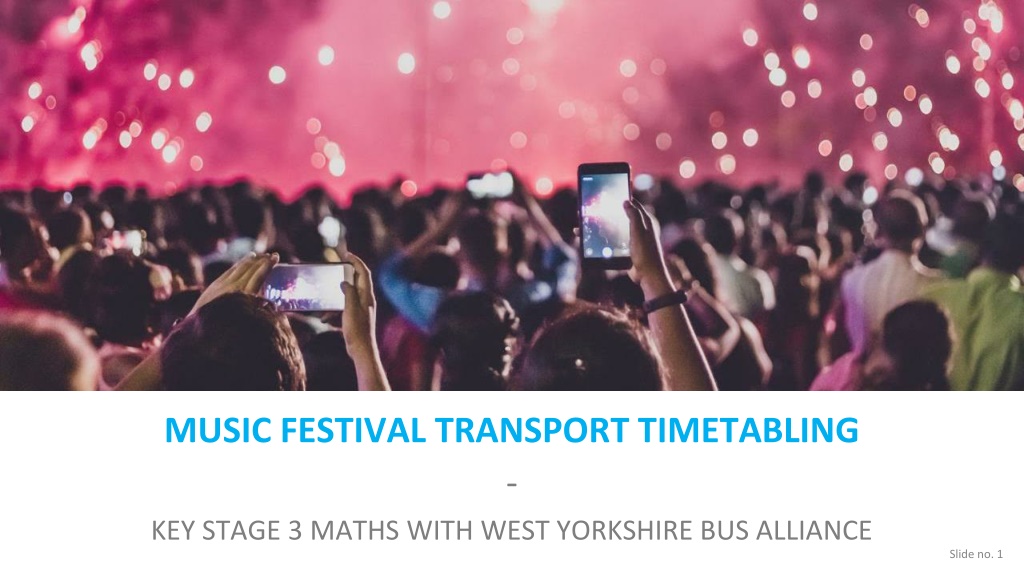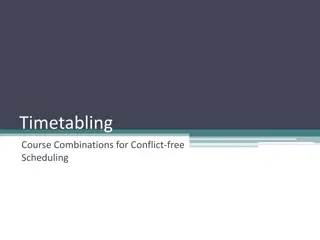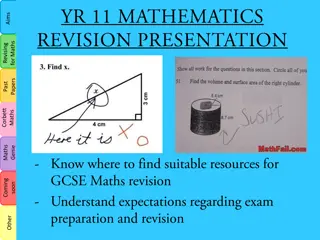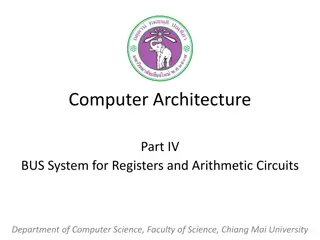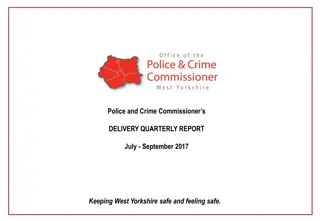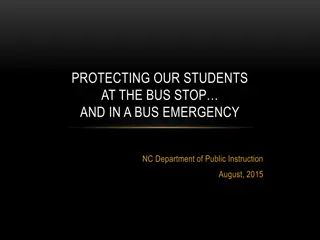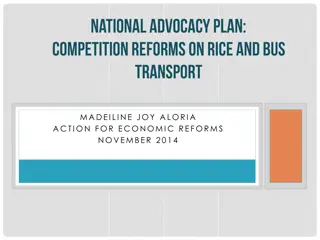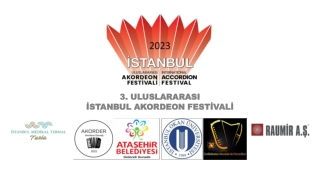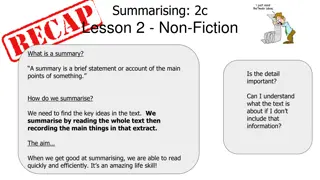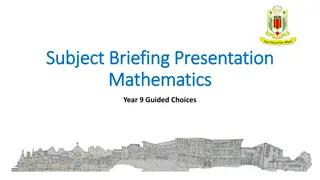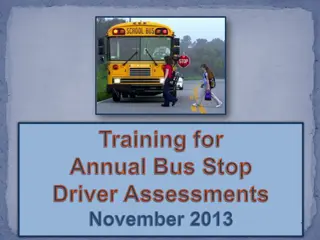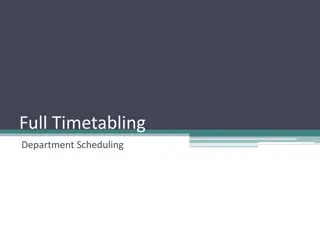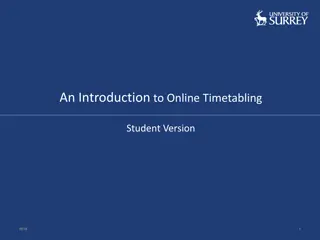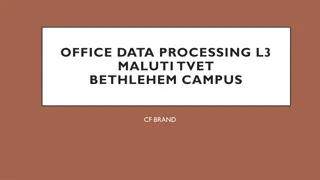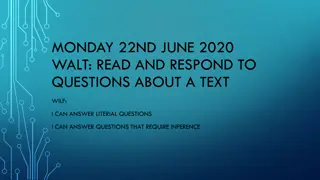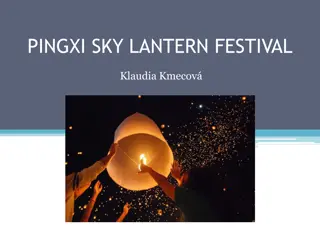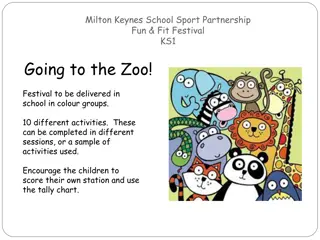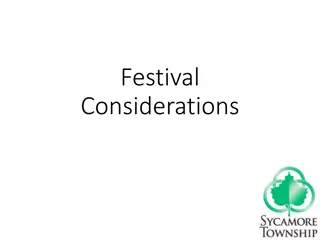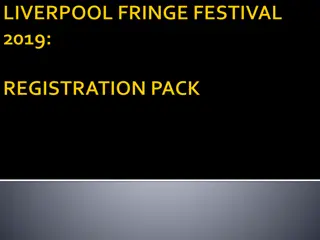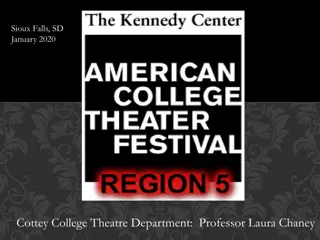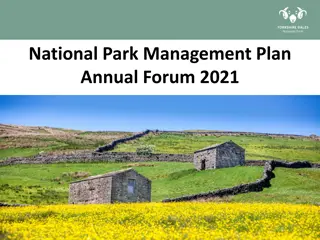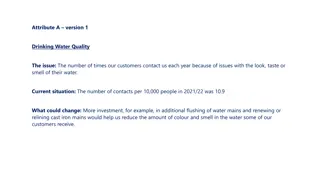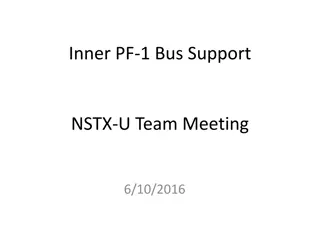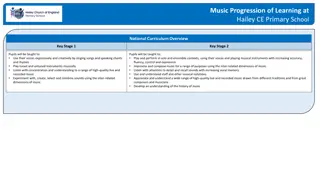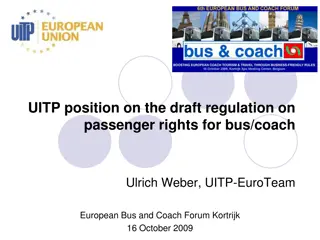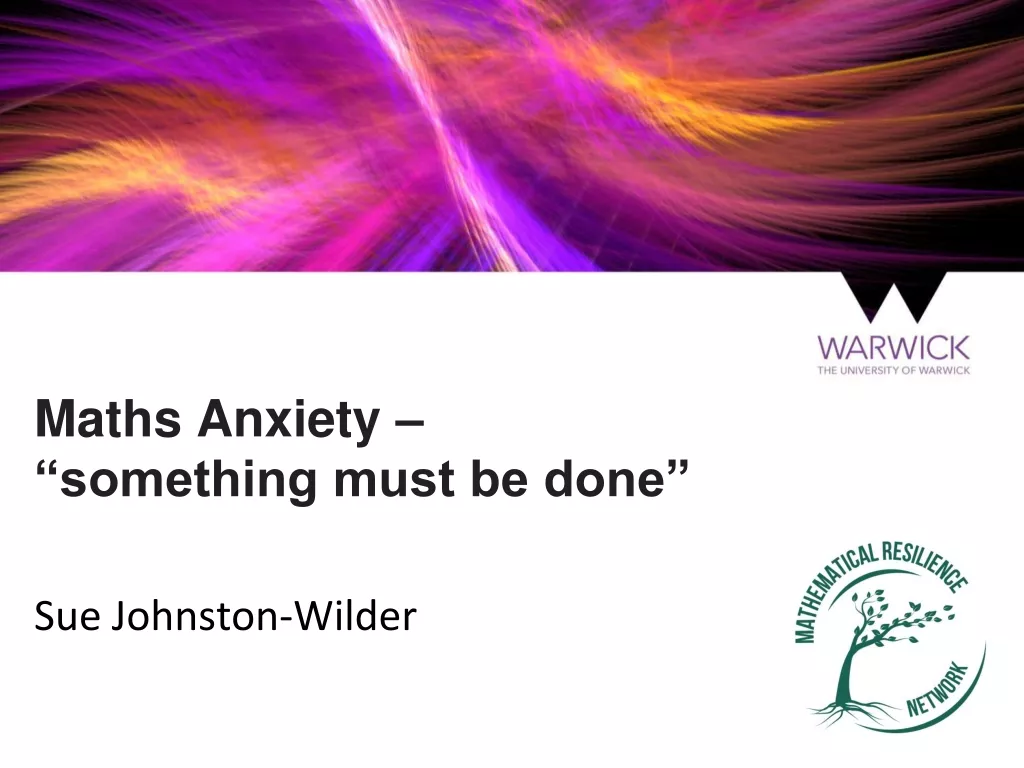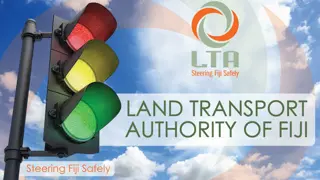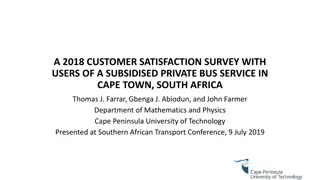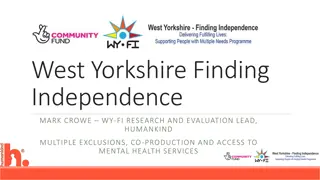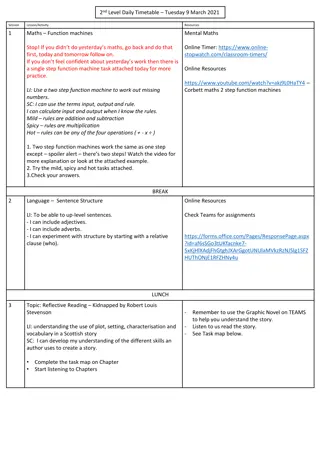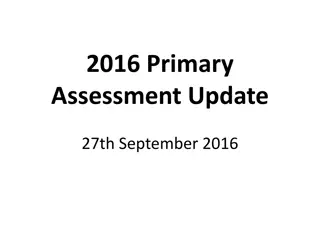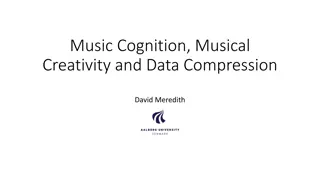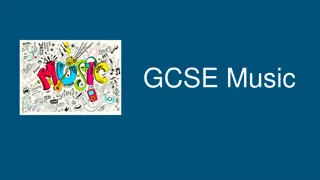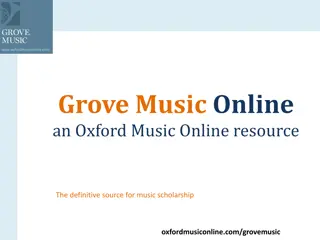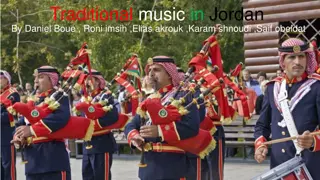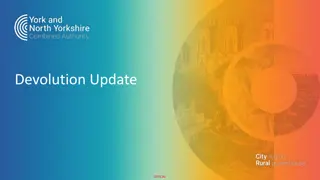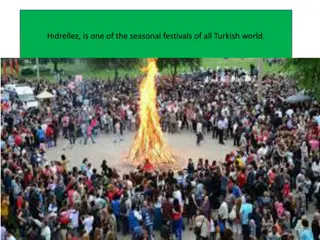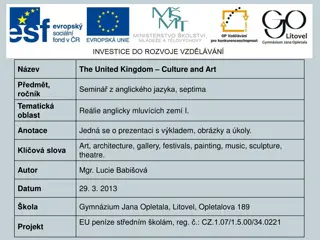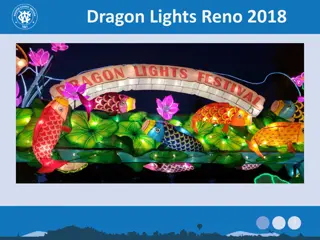Music Festival Transport Timetabling - Key Stage 3 Maths with West Yorkshire Bus Alliance
Today's lesson involves students working as bus operators for a music festival. They will create bus timetables, make decisions, and analyze data to ensure smooth transportation for festival-goers. The lesson challenges students' reasoning, decision-making, and data analysis skills, emphasizing the importance of planning and organization in a high-impact scenario. With a focus on efficient bus scheduling, students will consider various factors, including timings, driver requirements, capacity, frequency, and more. The task involves practical application of mathematical concepts in a real-world scenario, fostering critical thinking and problem-solving abilities.
Download Presentation

Please find below an Image/Link to download the presentation.
The content on the website is provided AS IS for your information and personal use only. It may not be sold, licensed, or shared on other websites without obtaining consent from the author. Download presentation by click this link. If you encounter any issues during the download, it is possible that the publisher has removed the file from their server.
E N D
Presentation Transcript
MUSIC FESTIVAL TRANSPORT TIMETABLING - KEY STAGE 3 MATHS WITH WEST YORKSHIRE BUS ALLIANCE Slide no. 1
Starter task Using and understanding a bus time table Slide no. 2
1.What time does the 843 first arrive at Malton? 2.How long does it take the 843 to get from Seacroft to Woodlands? 3.How often does the 843 leave Leeds City Bus Station? 4.If I catch the 14.12 from Heworth, will I arrive at Malton by 14.40? 5.I want to be in Dringhouses for 3pm. What is the latest bus I can catch from Tadcaster? 6. This extract is from a bus timetable running from Monday to Friday. What differences would you expect from a Sunday timetable between 7am and 8am? Slide no. 3
Todays lesson will test your: Reasoning skills Decision-making skills Data analysis skills You ll be doing this by taking on the role of a bus operator, working on a contract with a major weekend music festival. You ll be creating your own bus timetable for the weekend music festival using the above skills and more! Slide no. 4
Your brief: The contract including confidential data and info - is in the post. Your bus company have the chance to bring in hundreds of thousands of pounds in extra profit if you get this right! You must plan a timetable that: Gets thousands of festival goers to and from FRESH FEST Start your timetable on Wednesday for early-bird ticket holders Finish on Monday after the last acts appear on Sunday Discuss in pairs: What things might you need to take into consideration? What things might you need to know if you were organising this timetable? Slide no. 5
Did you consider .. ? What times should the buses run? How many drivers will you need? How many people will fit on a bus? How often should the buses be? What time is the first and last bus? How many people are you transporting? How many buses will you need? Slide no. 6
Your contract: Your contract has arrived! Read through the details and extra information in your pairs. Post-it task You have a chance to ask the festival company one question before you start. Write down your question on a post-it and stick your post-it note at the front Slide no. 7
Phase 1 How many passengers are you going to transport? 12,000 people have bought tickets to the festival. 15% have booked a car parking ticket (which gets them access to the festival and a reserved car parking spot for their vehicle). 1/2 have weekend tickets, and the rest have day tickets. The day tickets are for Friday, Saturday and Sunday, shared in the ratio 2:2:3. Ticket type Frequency Car parking ticket Weekend ticket Friday ticket Saturday ticket Sunday ticket Slide no. 8
Phase 1 How many passengers are you going to transport? 12,000 people have bought tickets to the festival. 15% have booked a car parking ticket. 1/2 have weekend tickets, and the rest have day tickets. The day tickets are for Friday, Saturday and Sunday, shared in the ratio 2:2:3. Ticket type Frequency Car parking ticket 1800 Weekend ticket 6000 Friday ticket 1200 Saturday ticket 1200 Sunday ticket 1800 Slide no. 9
Phase 1 How many passengers are you going to transport? Now you need to calculate how many guests you need to transport each day, taking into account return journeys. Of the people who bought weekend tickets, 35% have bought early bird tickets and will arrive on the Wednesday. The rest of the people with the weekend tickets will arrive on the Thursday. Remember day tickets have to return on the same day, and all the weekend tickets need to leave on the Monday. Ticket type Guests to the festival Guests returning to Leeds centre Wednesday Thursday Friday Saturday Sunday Monday You now have an idea of how many guests you need to transport on which times through out the weekend. Slide no. 10
Phase 1 How many passengers are you going to transport? Now you need to calculate how many guests you need to transport each day, taking into account return journeys. Of the people who bought weekend tickets, 35% have bought early bird tickets and will arrive on the Wednesday. The rest of the people with the weekend tickets will arrive on the Thursday. Remember day tickets have to return on the same day, and all the weekend tickets need to leave on the Monday. Ticket type Guests to the festival Guests returning to Leeds centre Wednesday 2100 0 Thursday 3900 0 Friday 1200 1200 Saturday 1200 1200 Sunday 1800 1800 Monday 0 6000 You now have an idea of how many guests you need to transport on which times through out the weekend. Slide no. 11
Examples of bus timetables Bus Leaves Leeds No of passenger s Leaves festival site No of passenger s Bus Leaves Leeds No of passenger s Leaves festival site No of passenger s 1 10.00 40 10.55 0 14 19.00 20 19.55 10 2 10.10 40 11.05 0 15 19.20 20 20.15 10 3 10.20 40 11.15 0 16 19.40 0 20.35 0 4 10.30 40 11.25 0 17 20.10 0 21.05 0 5 10.40 40 11.35 0 18 20.30 0 21.25 0 6 10.50 40 11.45 0 19 20.50 0 21.45 0 7 11.00 45 11.55 0 20 21.00 0 21.55 0 8 11.10 45 12.55 0 21 21.05 0 22.00 70 9 11.20 45 13.05 0 22 21.10 0 22.05 70 10 11.30 45 13.15 0 23 21.15 0 22.10 70 11 11.40 45 13.25 0 24 21.20 0 22.15 70 How many people have been transported in these examples? Extending - which days could these extracts be from? Slide no. 12
Phase 2 Using your data, deciding on your strategy You now need to think about these questions How many passengers can your bus hold? (Will you go single decker or double decker? Will you fill to capacity every single time? How often will your buses run? (It will take 45 minutes to get to the site, 10 mins to load and 45 minutes to get back to Leeds. Also, might there be times that are busier? Times that are quieter?) How many buses will you need? (Remember you are also wanting to keep your profits high. Will you have all buses running at once?) Discussion point why have you decided on those figures? Are there any risks you are taking? Why? Are there any things you have put in place just in case ? Why? Slide no. 13
Phase 3 Building the timetable. You can now have a go at building your timetable there is a column at the side to keep a track of the total passengers transported Check - your total passengers out to the event should equal the total passengers returning from the event. Discussion point What specific decisions have you made about your bus timetable? Why? Are there any differences on specific days? Why? If not, why not? Slide no. 14
This column tells you the bus number, to keep track of how many busses you are using. This column tells you how many passengers you transported back from the site. You wouldn t expect any people to be travelling back on the Wednesday. This column tells you how many passengers you transported to the site. By 14.30 in this example 370 passengers have been transported to the festival site. Will you need the busses more often? Or two busses at the same time? Slide no. 15
Phase 4 Refining based on more data You have just been passed some more information about the headlining acts each day. These acts finish at 10pm every night. You will have already decided about the return time for the day guests. Look at the information about the headliners What does this tell you? What conclusions can you make about the information you have just received? Will guests stay for the headliner? Will they leave early? Are you going to change your bus timetable? Discussion point Did you make any changes? Why? Why not? Slide no. 16
Phase 5 Cost - Using the example of bus timetable hand out and this information can you work out the profit in those extracts? A return ticket for the bus costs 5 How much money will you make from all your passengers buying a ticket? A bus costs 300 per day to hire How much will it costs you to hire the buses? A driver costs 20 per hour to employ How much will it costs you to pay the drivers? How much money have you made over all? Extend - Can you work out your overall profit from your timetable? Slide no. 17
Examples of bus timetables Bus Leaves Leeds No of passenger s Leaves festival site No of passenger s Bus Leaves Leeds No of passenger s Leaves festival site No of passenger s 1 10.00 40 10.55 0 14 19.00 20 19.55 10 2 10.10 40 11.05 0 15 19.20 20 20.15 10 3 10.20 40 11.15 0 16 19.40 0 20.35 0 4 10.30 40 11.25 0 17 20.10 0 21.05 0 5 10.40 40 11.35 0 18 20.30 0 21.25 0 6 10.50 40 11.45 0 19 20.50 0 21.45 0 7 11.00 45 11.55 0 20 21.00 0 21.55 0 8 11.10 45 12.55 0 21 21.05 0 22.00 70 9 11.20 45 13.05 0 22 21.10 0 22.05 70 10 11.30 45 13.15 0 23 21.15 0 22.10 70 11 11.40 45 13.25 0 24 21.20 0 22.15 70 Slide no. 18
Phase 5 Cost 1. How much will you charge for tickets? Will you charge for single tickets? Will you charge for return tickets? 1. There is two types of buses on offer. The first bus comes with an initial charge of 200, but then costs 50 a day. The second bus is 100 a day. This is shown on the graph. What does the graph tell you about cost effectiveness? Which bus will you choose? Will you have a mixture? Cost in Slide no. 19 Hours hired
Phase 5 Cost 3. A driver costs 20 per hour. However you need to take into account the legal driving regulations. This might affect how many drivers you need. You are being handed key information on what the law says about how and when and drivers can work. Read this in your pairs and make sure you take it into consideration. How much will it cost you to pay your drivers? Overall how much profit will you make? (Total amount from tickets (cost of buses + cost of drivers) Slide no. 20
Youve used all these skills today pick 3 you think you used most Reasoning Decision-making Data analysis Organisation Methodical thinking Business and enterprise Teamwork and communication Problem-solving Slide no. 21
How many of these real-world jobs link to today s lesson? Transport planner Makes sure people, packages, or materials (depending where they work) arrive at their destination on time. Project Manager Manages and organises teams of people to make sure a project (anything from launching a new app to building a skyscraper) gets done on time and within budget. Bus driver Serves customers and gets them where they want to be safely and efficiently. Event Co-Ordinator Plans events and makes sure they run smoothly on the day: anything from music festivals, to videogame conferences and celebrity weddings. Accountant Manages and records money coming in and out of a business to make sure they can afford to run and make a profit. Slide no. 22
How many of these real-world jobs link to today s lesson? ALL OF THESE JOBS LINK TO THE TASKS AND SKILLS YOU VE TACKLED TODAY! Transport planner Makes sure people, packages, or materials (depending where they work) arrive at their destination on time. Project Manager Manages and organises teams of people to make sure a project (anything from launching a new app to building a skyscraper) gets done on time and within budget. Many of them link directly to roles available with bus companies locally. Some (like Project Manager, Event Co-Ordinator and Accountant) you could do in any industry locally, nationally, or internationally! Bus driver Serves customers and gets them where they want to be safely and efficiently. Event Co-Ordinator Plans events and makes sure they run smoothly on the day: anything from music festivals, to videogame conferences and celebrity weddings. Accountant Manages and records money coming in and out of a business to make sure they can afford to run and make a profit. Slide no. 23
